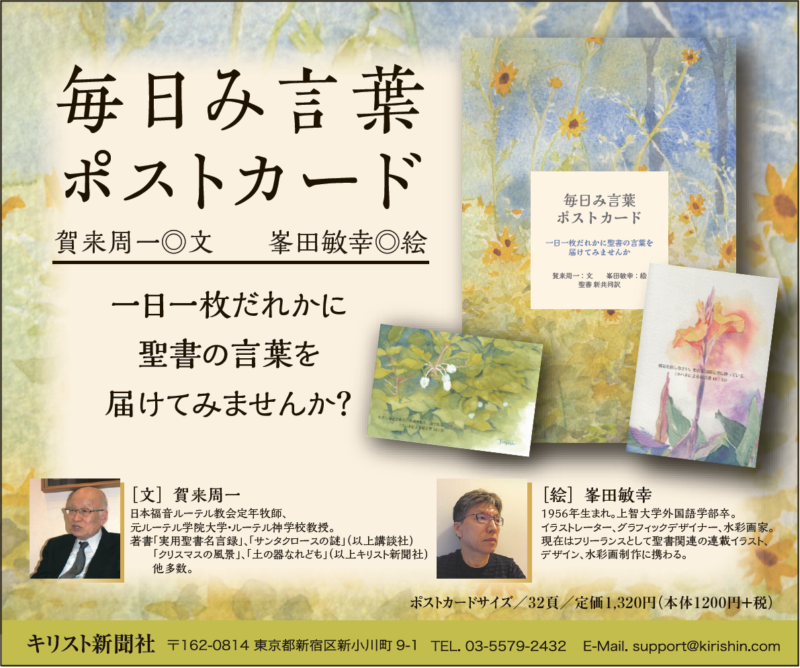(前半はこちら)
「多くのカトリック教徒よりも真面目な信徒であるバイデンですが、中絶に関してはプロチョイス(中絶の選択肢があることに賛成)の立場を取っています。民主党を支持するカトリック信徒の多くはそのことで彼を警戒しています。民主党は『人々が自分のことを自分で決められること』だけを目指しているように見えるし、それはカトリック教会が教える社会の在り方とは緊張関係にあるからです」とハンキンス氏は話す。
“He’s more serious about his Catholicism than a lot of Catholics are, but he still found his way to the pro-choice position on abortion,” Hankins said. “A lot of Catholic Democrats seem to be in this tension. The autonomy of the individual is kind of central to what their politics are all about and that’s in tension with the social teachings of the Catholic Church.”
ただし、バイデン候補が11月の大統領選で勝利するために必要なのは、「アメリカ的自由」と「キリスト教的自由」の理想の溝を埋めることではない、と言う。リベラル系カトリックであるバイデンが福音派から多くの票を獲得することはないかもしれないが、この選挙が接戦になった場合、バイデンがほんのわずかでも福音派からの票を得れば、それは大きな意味を持つものになるかもしれない、と同氏は語った。
Hankins added, though, that a major-party politician doesn’t need to resolve the difference between the ideals of American freedom and Christian freedom to win the election in November. He said that while Biden’s liberal Catholicism may not win many evangelical votes, even a few percentage points could matter in a close election.
投票を放棄する福音派白人層も居るだろうとショーン・ケイシー氏は予測する。同氏はジョン・ケリー書記長の下で米国務省「宗教と外交部会」局長を務め、カトリック信徒初の大統領となったジョン・F・ケネディがプロテスタント層の反抗をどのように潜り抜けて選挙を勝ったか、についての本を著している。
White evangelicals may also choose not to vote, said Shaun Casey, former director of the US State Department’s Office of Religion and Global Affairs under Secretary John Kerry, and the author of a book about how John F. Kennedy became the first Catholic president despite Protestant opposition.
「福音派の間ではトランプに対する不満が高まっています。福音派はトランプの弱点である不道徳さ、一貫性のなさ、気の短さ、能力の無さをよく知っています。だからといって、福音派が民主党に投票するとは思えませんから、なかには投票を放棄する人々もいるでしょう」と同氏は語った。
“There is a growing dissatisfaction among evangelicals with Trump,” Casey said. “They know Trump’s weaknesses: His immorality, his incoherence, his rage and incompetence. But I don’t see it leading them into the Democratic Party.”
なんにせよバイデンがカトリックとしての信仰について話すのは賢い選択だ、とケーシー氏は言う。信仰は、彼が一個人としてのつながりを多くの有権者と持てる点だからだ。そして信仰がどのように自らの人格を形作り、困難を迎えた時の支えとなり、優しさと慈愛の心を教えてくれたか、とバイデンが語る時、多くの有権者の目にはそれがトランプとの明らかな差として見えてくる。
Casey said Biden is smart to talk about his Catholicism in the campaign, regardless. It’s a point of personal connection with many voters. And when Biden talks about how his faith formed his character, sustained him in hard times, and taught him kindness and empathy, many will see a stark contrast with Trump.
これまでに大統領選に出馬したカトリック系候補のケースからも、バイデンが学んだことは多い、とケーシー氏は言う。2004年の大統領選でジョン・ケリー候補がしてしまったような保守カトリック司教たちとの衝突をバイデンは避け、宗教に関する議論でも共和党に押されることのないように奮戦している。
Biden has learned from previous Catholic candidates, Casey said. He knows to avoid the open conflict with conservative Catholic bishops that got Kerry into trouble in 2004 and, simultaneously, not to cede the subject of religion to the Republicans.
またバイデンは、自身の信仰を基に「包括的なアメリカ」の将来を描くだろう。それは、ビリー・グラハムなど著名なプロテスタントの指導者が「カトリック教徒に憲法を堅持することが出来るのか」と疑問視していた時にケネディが取った姿勢と似ている。その時の大統領選では、多くのアメリカ人が「誰が真のアメリカ人なのか」といった偏狭な価値観にうんざりし、包括性と多様性を求めてケネディに投票した。
Biden will also use his faith to emphasize his inclusive vision of America, as Kennedy did when Protestant leaders—including evangelist Billy Graham, Christianity Today editor L. Nelson Bell, and Trump’s childhood pastor Norman Vincent Peale—questioned whether a Catholic could faithfully uphold the Constitution. The Kennedy campaign found that many Americans were offended by the narrow view of who was really an American, and would vote for inclusivity and pluralism.
バイデンは大統領選において、彼が「福音派白人層を含めたすべてのアメリカ人」に意識を向けていることをアピールするだろう。
Biden’s campaign will work to show that the candidate cares about all Americans—even white evangelicals.
バイデンの宗教担当官ジョシュア・ディクソン氏は語る。「私たちはこの選挙で誰のことも無視する気はありません。私は、福音派がいかに多様であるかを知っています。福音派にも様々な背景、信仰観、信仰の実践、政治問題への見方を持った人々がいるのです。」
“We don’t write anybody off in this campaign,” said Joshua Dickson, Biden’s national faith engagement director. “I know how diverse evangelicals are in terms of their backgrounds, in terms of how they look at their faith and how they practice, and in terms of the issues they care about.”
ディクソン氏が討論会に招待した宗教指導者たちのリストには福音派の人々も含まれていた。討論会では選挙の争点となる問題点や、この選挙がもつ重要性について意見を求められる。福音派との間には意見が異なる点もあるが、共に取り組める事柄があることもある、とバイデン陣営は見ている。
Dickson has been inviting evangelicals, along with other groups of religious leaders, to listening sessions, where they’re asked their opinions about the big issues in the campaign and the stakes of the upcoming election. Though there are differences, the campaign sees common commitments too.
「私たちは価値観の本質において共通意識を持つことができるはずです。それは隣人を愛すること、正義のために戦うこと、そしてすべての人がもつ人間の尊厳を守ることです」とディクソン氏は語った。彼自身もまた、福音派の信徒だ。
“The core values are the connection point: loving your neighbor, fighting for justice, and upholding the inherent human dignity of all,” said Dickson, who is an evangelical himself.
リチャード・モウ氏はこれまでに二度討論会に招待され、民主党と対話した福音主義指導者たちとも話をしている。今週末行われる討論会にも参加するが、そこで同氏は「中絶」と「宗教的自由」に関する民主党の立場を問いただす予定だ。
Richard Mouw has been invited to two sessions and spoken to multiple evangelical leaders who have met with the Democrats. He will join a listening session later this week. Mouw plans to bring up the party’s positions on abortion and religious liberty.
「これらの議論は重大です。絶対に譲れない点を持つ人々の声を無碍(むげ)にはしない、という姿勢をバイデンが見せることは非常に大事だと思います。たとえ福音派コミュニティーのもつ信念が、彼自身の信念とは異なっていたとしても。」
“There are real issues,” he said. “It’s very important that Biden send out a signal that he cares about communities of faith and people of conviction—even convictions that are different from his own.”
「そのような姿勢を見せるだけで彼が福音派有権者の票を獲得することはできないかもしれません。しかしそれがマイナスに働くことは無いでしょう」とモウ氏は言う。
Gestures might not be enough to bring evangelicals and a Catholic candidate together, Mouw said, but they won’t hurt.
執筆者:ダニエル・シリマン
本記事は「クリスチャニティー・トゥデイ」(米国)より翻訳、転載しました。翻訳にあたって、多少の省略をしています。
出典URL:https://www.christianitytoday.com/news/2020/august/joe-biden-catholic-evangelical-faith-vote-2020-convention.html
バプテスト派。オーストリア・カナダに留学経験を持つ。大学の専攻は仏文学。
関連

























